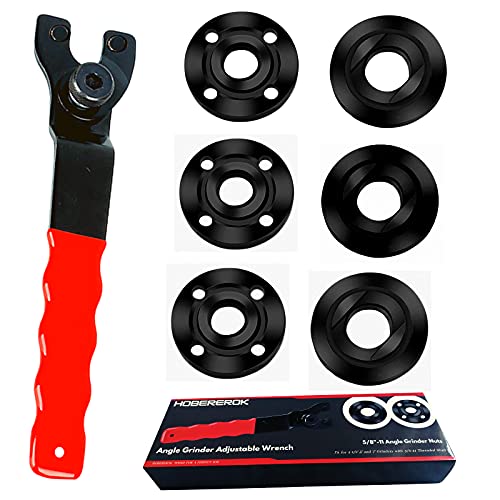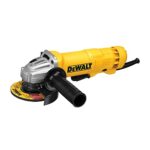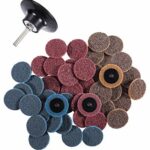
A worn out bearing will generate a noise, such as a rumbling, howling, grinding or growling sound and it can also have play in it, causing a vibration. Install the new bearing by hand, evenly,…. A worn out bearing will generate a noise, such as a rumbling, howling, grinding or growling sound and it can also have play in it, causing a vibration. To replace a bearing on the armature, remove the gear housing from the grinder.
For the past several days I have been using my Makita GA4030 to work on an extensive project for many hours at a time. As I was using it this afternoon I noticed that the grinder started making a funny noise that it has never made before.
We all know working in the building and construction industry can be a noisy job! With the typical noise of an angle grinder being reminiscent of attending a live rock concert, this can have negative consequences when carrying out building and construction projects, particularly in noise sensitive areas. Silent diamond blades, such as Norton Silencio has up to 15 dB reduction in cutting noise, equivalent to up to 30 times less noise than a standard product. With more and more local regulations preventing excessive noise levels, the Norton Silencio is an ideal option as it protects the surrounding area from disturbing cutting noise. Limit the hours worked in a hazardous noise area and include ‘quiet days’ when scheduling work. As well as having a potential negative effect on others in noise sensitive areas, the noise from using construction tools can also increase the risk of Noise Induced Hearing Loss to the user. Regular exposure to noise levels of 110 dB or more for periods longer than one minute can cause hearing loss and tinnitus, the perception of noise or ringing in the ears. A research study by the Building Trades National Medical Screening Program found that the construction industry saw the second highest number of workers exposed to noise hazards, with nearly 80% of welders suffering from hearing loss and 47% or roofers experiencing NIHL. The National Institute for Occupational Safety and Health found that a 25-year old carpenter is likely to have the ears of 50-year old person who has not been exposed to noise.
If you want to pay ~$400 they make super bad ass ones that are very quiet. They are remote mount where the motor hangs off the table and there is a flex cable for the head. I saw them at SEMA and tried them out. They had huge balls and I couldn’t bog it, but the price tag was the deal breaker.
These may reduce noise levels by as much as 8 dB. use smaller grinders. Using a 4-inch or 125 mm grinder instead of a 9-inch or 228 mm grinder can reduce noise levels by 6 to 10 dB. use grinders with quieter motors. Isolation mounts reduce vibrations caused by grinders and can reduce noise by 2 to 4 dB. clamp work pieces as close as possible to where grinding is happening. The noise exposure of one employee working alone with a grinder might be 100 dB(A). Move employees who are not using grinders further away from noisy grinding processes. Rotate employees to reduce their duration and exposure to grinding noise. Halving the time an employee spends grinding reduces their exposure by 3 dB(A).
As far as i am aware the grinder is fine if turned manually. I can fire up the grinder and when i start to grind say 10 seconds later, the sound can start. Perhaps one or more of the screws is loose either holding the gearbox to the motor housing or the gearbox cover plate to the gearbox so that if you use the grinder in one position, it pushes the parts together or if you use it in another, it pulls the parts apart causing the noise.
why angle grinder is noisy Related Question:
How do I stop my angle grinder from making noise?
Dampen the vibration of the material being ground or cut. For example: clamp as close as possible to work area. Where possible use tool outside – beware of noise annoyance to adjacent areas. Line surfaces adjacent to grinding bay with acoustic absorption materials to reduce reflected sound.
Does an angle grinder make noise?
We all know working in the building and construction industry can be a noisy job! With the typical noise of an angle grinder (110 dB) being reminiscent of attending a live rock concert, this can have negative consequences when carrying out building and construction projects, particularly in noise sensitive areas.
Why does grinder have a buzzing sound?
Humming Sound The humming (or sometimes buzzing) sound that your garbage disposal makes is an indication that there is power coming into the unit but the blades are not turning. The humming sound can be a sign that the motor is clogged or jammed resulting in its failure to grind.
Is there such a thing as a quiet angle grinder?
A Powerfile is a good deal quieter on smaller jobs. A compressor driven grinder is a tad quieter (and produces less vibes) if you can put the compressor in a less noise sensitive area.
What angle should you use an angle grinder at when grinding a flat surface?
For surface grinding, use the flat part of the wheel, maintaining a 20°-30° angle between the tool and the work surface. Position the blade guard at the back towards your body. Use a smooth back and forth motion to guide the flap disc over the material.
What type of abrasive wheel is suitable for hand-held grinding machines?
Only organic-bonded wheels should be used for portable and hand-held grinding machines. Those intended for cutting-off operations should additionally have some form of reinforcement, usually fibre glass. Inorganic bonds are generally fired in a furnace to give the bond a hard, strong but brittle structure.
What is balancing of grinding wheel?
The balancer is a system that controls the intensity of the vibrations on the grinding wheel to automatically compensate for any imbalances and improve the quality of the parts produced, specifically the surface finish (roughness) and geometry (ovality and trilobate form).
What causes the grinding wheel to wear too rapidly?
This can be caused by: Insufficient coolant. Dressing too often. A wheel that’s either too hard or too soft for the workpiece (so it loads up or wears away too quickly)
Why is my mixer so noisy?
What’s normal? Larger mixers can be louder than smaller capacity mixers, due to the need for a larger motor and all-metal gears. They may sound shrill, or “airplane-like” DC motor mixers are quieter than AC model mixers. If you are used to a smaller mixer and then purchase a larger one, it may seem loud, initially.

